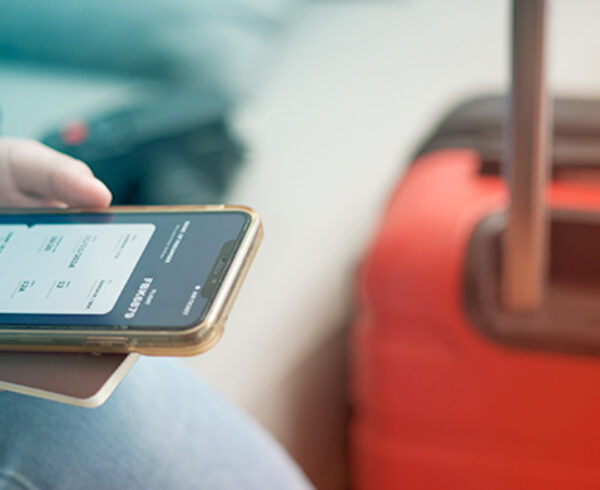Creating a strong company culture is key to retaining existing talent and attracting new talent.
As a Business News Daily report detailed, multiple studies have shown that a large majority of employees are willing to leave their jobs for positions where they can enjoy a better company culture.
One of the ways you can enhance your company culture? By making business travel not only easy for your employees, but by making the business travel experience actually enjoyable for your employees. Here are three ways to ensure your business travel policies and practices are helping your company culture, rather than harming it.
But first — company culture and why you should care
Company culture can be difficult to define, but, in its simplest form, company culture is the set way of doing things at your organization. It’s what people do and why they do it, how they perform and go about their tasks based on the organizational structure and inner-office dynamics. Company culture can make or break a company. It can attract new, highly desirable talent, or it can drive them away.
However, what’s not vague about company culture is the numbers. Company culture spells out a big impact when it comes to your bottom line.
From a data perspective, the pros at McKinsey and Company have found that companies with highly ranked cultures “post a return to shareholders that is 60% higher than median companies and 200% higher than those” with poor company cultures. When companies want to pivot or change, those who fail to pivot successfully can, 70% of the time, blame their failure on culture-related issues.
In short, company culture is one aspect of your organization that you just can’t afford to ignore, and business travel can play a big role in your company’s culture now more than ever.

1. Ensure your company’s business travel is flexible.
With the Covid-19 pandemic came a big shift in the way we do work, especially where we do work. Most companies went completely virtual/remote at first, with some switching to a hybrid model later down the line. However, even three years after the start of the pandemic, some companies are still keeping their workforces either remote or hybrid, and for good reason: That’s simply what employees want. Another McKinsey study found that nearly 90% of employees will take a flexible work option when it’s available to them.
However, when you’re considering offering flexible work options to your employees (such as the ability to work in-office some days, remotely on others, etc.), don’t forget to also make your business travel flexible. Employees want working conditions that fit within the confines of their broader lives, and business travel should fit within those confines as well.
What does flexible business travel look like? It’s allowing employees to attend some events or conferences virtually when they may have attended in person in the past. Allowing employees to pick the travel dates that work best for them. And recognizing that your employees have lives and responsibilities outside of their business travel.

2. Allow employees to blend business travel with leisure.
Part of that flexible approach to business travel is allowing for bleisure travel. A trend that’s been growing in popularity over the last decade or so, with a brief pause in growth over the pandemic, only to come roaring back after the fact, bleisure travel blends business and leisure travel, with employees tacking on leisure trips to the beginning or end of a work trip.
Bleisure travel has been further expanded in more recent years, too, with employees actually enjoying leisure travel while working (i.e., they might work remotely for an extended time, while also traveling to destinations crucial to their employer’s business, like cities where a client might be located, or a destination hosting an industry event).
While this latter trend isn’t something that many employers have yet picked up on, it’s one that hotels are seeing the demand for, and adjusting their offerings accordingly, as a Travel Weekly report showed, citing the State of the Hotel Industry Report and the American Hotel & Lodging Association.

3. Make the travel booking process easy, not an extra chore.
One thing that’s sure to have a negative impact on company culture? Extra, unnecessary, time-consuming and bothersome tasks — like those that are sometimes associated with corporate travel policies and travel booking. This is why it’s so incredibly important to make your business travel booking process as easy as possible, making it simultaneously as easy as possible for your travelers to remain compliant.
For example, if you want to boost company culture by allowing for more bleisure trips or flexible business travel (sometimes referred to as a “flexcation”), then you need to ensure your travel policies also allow for that. The same Travel Weekly report linked above cited a Global Business Travel Association poll that showed about half of polled employees said that their travel policy does not permit bleisure travel; however, their actual employers do allow for bleisure travel. This can make for compliance confusion, leading to lessened compliance down the line, in other areas.
Additionally, if you’re planning to allow for more bleisure travel or flexcations, ensure that your travel policy, and processes and systems, provide the right services to make that travel easy, too. Think about duty of care and traveler health, and how you can continue to protect and serve your travelers, even if they might only be working for part of their trip.
Boost Your Company Culture and See the Benefits That Follow, with JTB Business Travel
Like many business trends, company culture is always changing, shifting and evolving. What today’s business traveler wants and needs is not necessarily what tomorrow’s business traveler wants and needs.
Work with a trusted partner like JTB Business Travel to navigate these changes and anticipate your employees’ travel concerns, and see the resulting company culture benefits. Remember, company culture isn’t something you can afford to ignore if you want to retain your top talent and attract new talent; ensuring your business travel policies boost company culture instead of dragging it down is an investment worth making.














Leave a Comment